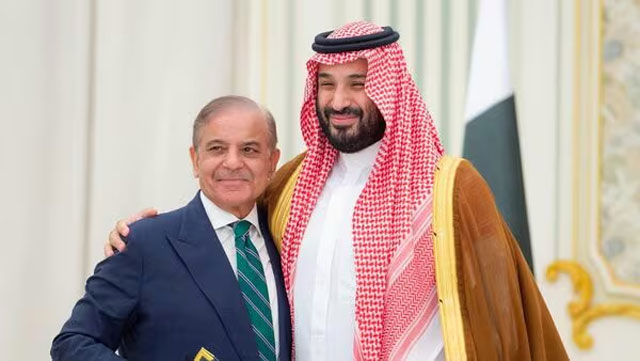Daijiworld Media Network - Riyadh
Riyadh, Sep 18: Pakistan and Saudi Arabia have signed a landmark mutual defence pact, further deepening their decades-long security partnership at a time of escalating tensions in the Middle East. The agreement was inked on September 17 during Prime Minister Shehbaz Sharif’s state visit to Riyadh, in the presence of Saudi Crown Prince Mohammed bin Salman.
According to a Reuters report, the deal is being seen as a significant step by Gulf Arab states to bolster regional security, particularly as concerns grow over the United States’ reliability as a long-term guarantor in the region.

A senior Saudi official, speaking on condition of anonymity, described the pact as the “institutionalization of longstanding and deep cooperation” between Riyadh and Islamabad. “This agreement is a culmination of years of discussions. It is not a response to specific countries or events,” the official clarified, when asked about its timing.
The pact comes against the backdrop of renewed unrest in the Middle East. Israel’s recent airstrikes on Doha, aimed at targeting Hamas leaders during ceasefire negotiations mediated by Qatar, have drawn sharp criticism from Arab nations. The Gulf monarchies, meanwhile, continue to grapple with balancing ties between Israel and Iran amid the Gaza crisis.
Balancing Ties with India
Interestingly, Saudi Arabia also underlined that the new pact with Pakistan does not undermine its growing engagement with India. “Our relationship with India is more robust than it has ever been. We will continue to grow this relationship and seek to contribute to regional peace whichever way we can,” the Saudi official told Reuters.
Scope of the Pact
When asked whether the agreement implied a nuclear umbrella for Riyadh, the Saudi official clarified: “This is a comprehensive defensive agreement that encompasses all military means.”
The deal is expected to open avenues for enhanced military cooperation, intelligence sharing, joint training exercises, and greater interoperability between the armed forces of both nations.